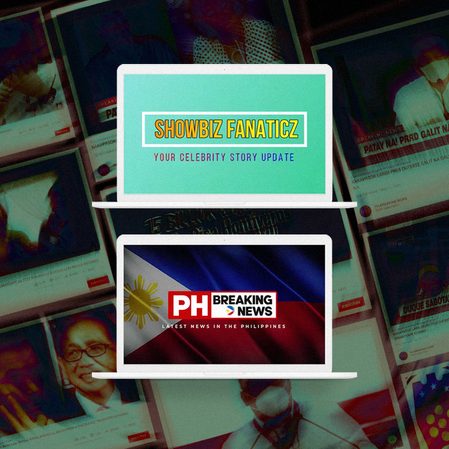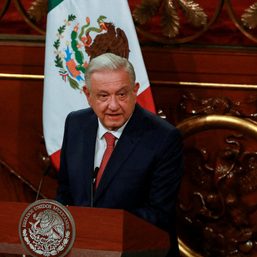SUMMARY
This is AI generated summarization, which may have errors. For context, always refer to the full article.

MANILA, Philippines – Over 80 fact-checking organizations around the world admonished YouTube on Wednesday, January 12, for its failure to effectively address online disinformation and misinformation.
They signed an open letter released on Wednesday and addressed to YouTube CEO Susan Wojcicki, calling for more effective action to end the spread of disinformation.
The signatories – which include Philippine fact-checking organizations Rappler and VERA Files – said that current measures to address disinformation and misinformation on the platform are insufficient.
“What we do not see is much effort by YouTube to implement policies that address the problem. On the contrary, YouTube is allowing its platform to be weaponized by unscrupulous actors to manipulate and exploit others, and to organize and fundraise themselves,” the letter read.
Here are the solutions they proposed to reduce the spread of disinformation and misinformation on YouTube.
Meaningful transparency
The signatories urged YouTube to support independent research on the origins of various misinformation campaigns and their reach and impact, as well as the “most effective ways to debunk false information.”
They also want YouTube to publish its full moderation policy on mis- and disinformation, covering its use of artificial intelligence and the data used to operate it.
Analysts had earlier pointed out that it’s difficult for artificial intelligence to detect problems with video.
Debunking efforts through collaboration with fact-checkers
YouTube’s community guidelines prohibit only a limited scope of misinformation and disinformation, specifically deceptive practices, impersonation, and hate speech. There are also policies against misinformation related to elections and COVID-19. These policies let slip several other areas and issues where misinformation and disinformation could occur.
Moreover, YouTube does not have a proper labeling system for videos that have been debunked. Instead, in some countries, on videos that discuss topics prone to misinformation and disinformation, they place information panels that lead to third-party information. (READ: YouTube rolls out information panels on ‘Martial Law in the Philippines’)
Fact-checkers said that the platform should focus on providing context and debunk lies with labels “clearly superimposed on videos or [provide] additional video content.”
They said this can only be done by “entering into a meaningful and structured collaboration taking the responsibility and systematically investing in independent fact-checking efforts around the world.”
They have long been advocating for labeling and contextualizing false or misleading claims on YouTube, citing Facebook’s Third-Party Fact-Checking program that allows independent fact-checkers to rate or label posts spreading disinformation and misinformation.
Action against repeat offenders
The fact-checkers also doubled down on repeat disinformation and misinformation offenders, particularly those who monetize content on and outside the platform. They said the platform can act against them by “preventing its recommendation algorithms from promoting content from such sources of misinformation.”
The fact-checkers also criticized YouTube’s viewpoint on tackling disinformation as a “false dichotomy” of whether or not content would be deleted.
“By doing this, YouTube is avoiding the possibility of doing what has been proven to work: our experience as fact-checkers together with academic evidence tells us that surfacing fact-checked information is more effective than deleting content,” the letter read.
A study by researchers at the University of the Philippines found that in election discourse on YouTube, mainstream professional media channels are increasingly detached from other clusters in a network of election actors.
Some of the most recommended channels in this network under YouTube “news and politics“ channels are Showbiz Fanaticz, a channel that has been fact-checked by Rappler at least 41 times, and Filipino Future, which has a history of posting false information related to the family of former dictator Ferdinand Marcos.
Extending efforts in more languages
Lastly, the signatories want YouTube to extend efforts against disinformation and misinformation “in languages different from English,” and to provide country- and language-specific data and transcription services for any language.
They cited various content on YouTube that potentially led to real-world harm in several countries. “Many of those videos and channels remain online today, and they all went under the radar of YouTube’s policies, especially in non-English speaking countries and the Global South. We are glad that the company has made some moves to try to address this problem lately, but, based on what we see daily on the platform, we think these efforts are not working – nor has YouTube produced any quality data to prove their effectiveness.”
YouTube’s policy rollouts are not implemented evenly across countries. The information panels, for example, are not available in all countries and languages.
Research conducted by Mozilla found that non-English-speaking countries “suffer the most from YouTube’s lack of transparency.” Fact-checkers also said that non-native English speakers find it hard to fact-check videos due to the limited automated transcription tools for other languages. – Rappler.com
Add a comment
How does this make you feel?


![[OPINYON] Tungkol sa naging viral na social media conjecture](https://www.rappler.com/tachyon/2024/07/thought-leaders-conjecture-07262024.jpg?resize=257%2C257&crop_strategy=attention)
![[DECODED] The Philippines and Brazil have a lot in common. Online toxicity is one.](https://www.rappler.com/tachyon/2024/07/misogyny-tech-carousel-revised-decoded-july-2024.jpg?resize=257%2C257&crop_strategy=attention)








There are no comments yet. Add your comment to start the conversation.